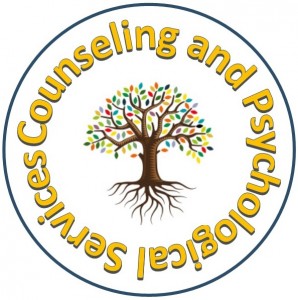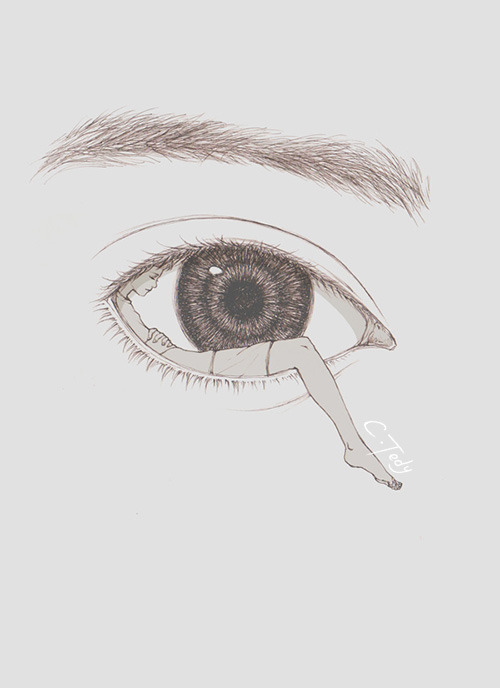The Individual's Voice
November 3, 2017
"Get over it."
"You're just asking for attention."
"People go through a lot worse."
"Stop exaggerating."
"That's life."
"It's not a big deal."
Cynthia Tedy
thoughts out from where I shut them."
- Kylie (Junior)
Through the year's mental health's stigma's have declined which caused the topic to became more open. The Nation Suicided Prevention Hotline and Association for Behavioral Health and Wellness (ABHW) are important organizations that have helped the conversation. Both organizations focus on multiple services for people that need help with mental health. Yet, while these exist people are still hesitant to get help and share their experiences. Although statistics are easy to find that show it is a common problem an individual can find it hard to believe when they are surrounded by people who cannot relate to them. Many times, statistics are said to encourage people to speak, but this makes the problem a lot more artificial opposed to humane. A statistic does not show the importance of mental health instead it comes from the individuals whose used their voices and those who are still silenced.
"I thought of mental health as an excuse.
When you don't want to take
responsibility for your behavior. "
- Catherine (TCNJ Alumni)
"It's easier to talk to people who
have similiar issues as you do."
-Lia (Sophomore)
An important mental health service at The College of New Jersey (TCNJ) is the Counseling and Psychological Services (CAPS) which continues to help students every semester. While people are aware the service is confidential many are still hesitant to receive help. Catherine, a TCNJ alumni who graduated in 2017 mentioned how it took her almost a semester and a half to go to CAPS. Since she did not connect with the therapist it took her two and a half years to go back for group therapy. Two TCNJ students, Kyle, a Junior and Lia, a freshman mentioned they went through something similar. Kylie and Lia said they started counseling, their freshman year but decided to go to a workshop instead of individual therapy. Lia decided to continue because she found it helpful. They had positive experiences when they started counseling but many people find it difficult to acknowledge their problem let alone get help. While mental health is not considered a taboo like it used to be in the past and many find it helpful why do so many find it difficult to start? The mindset people have about mental health continue to be negative even though the conversation shifted. Many of them are scared about how people will react if they express themselves especially if people consider their problems small compared to their own. Instead, they may insult them and say they are exaggerating and should get over it.
When it comes to mental health people consider exaggeration to be a word that accurately describes people with mental health issues. People acknowledge physical problems since they can see it with their own eyes but since the pain doesn't visually appear it makes people question whether it exists. Prior to CAPS Catherine mentioned that if she went it would be an excuse for her behavior. Catherine mentioned that before she started therapy she believed mental health was an excuse for people who did not want to take responsibility. Later on, she believed people only went to therapy if their problem was difficult to solve and thought she was exaggerating her problem but this disappeared when she started counseling. She said "It's been a complete one-eighty" after she started getting help. "I think taking care of yourself mentally is more important than taking care of yourself physically just because a mental state of mind controls pretty much your entire body." She now acknowledges mental health to be a real problem and even more important than physical health. Since she met others who have similar issues she became aware of her own problems and mental condition. Kylie, even said she "wasn't alone" when she started group therapy and that "the feeling was good. The group listened because they all cared." Even though statistics show numbers they fail to show the person behind them.
"People say you are not alone, but it's hard to believe when you feel like you are the only one."
-Kyle (Junior
Interview
working she spoke about the work environment and her how they treat her knowing her past.
No one interviewed regretted attending CAPS, even though negative stigmas held them back. It took Catherine a while to go and when she did she had a bad experience since she didn't connect with her therapist. The success of the session depends on the connection between the individual and the therapist. "I went to three or four different therapists before settling on one" Kylie mentioned. Mental health isn't a simple issue, its complex and takes years of courage to combat. Yet, at the end, they were happy they went. "I'm not afraid anymore" was one of the last quotes Kyle said and it summons up many individuals' experiences.
because I don’t consider it a personal
problem, it’s out on the table.” "- Kylie (Junior)







